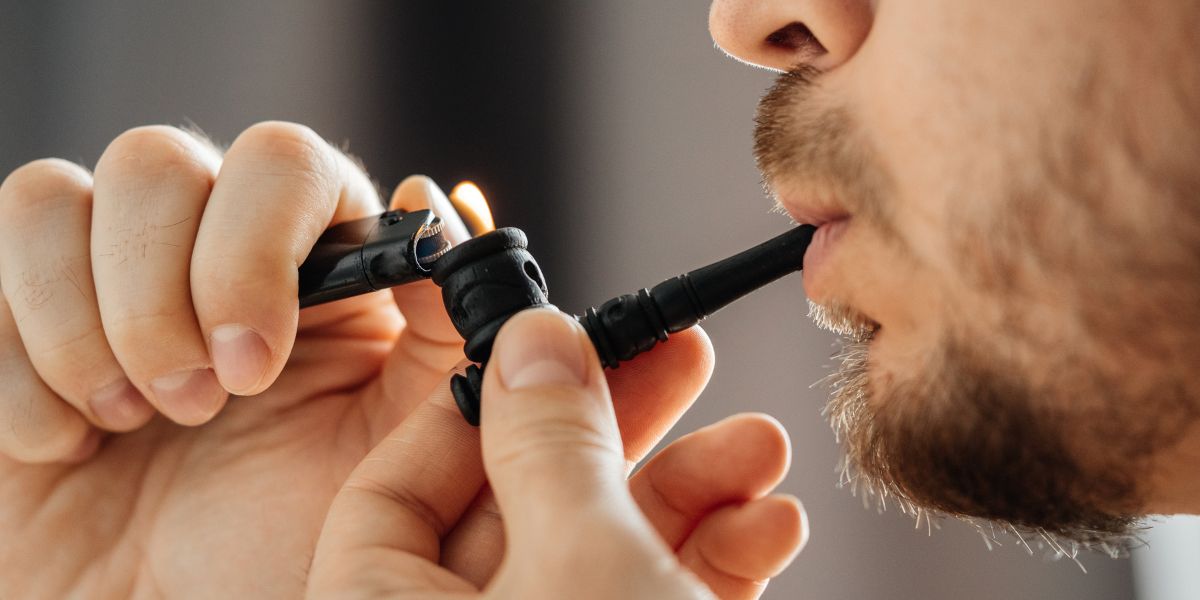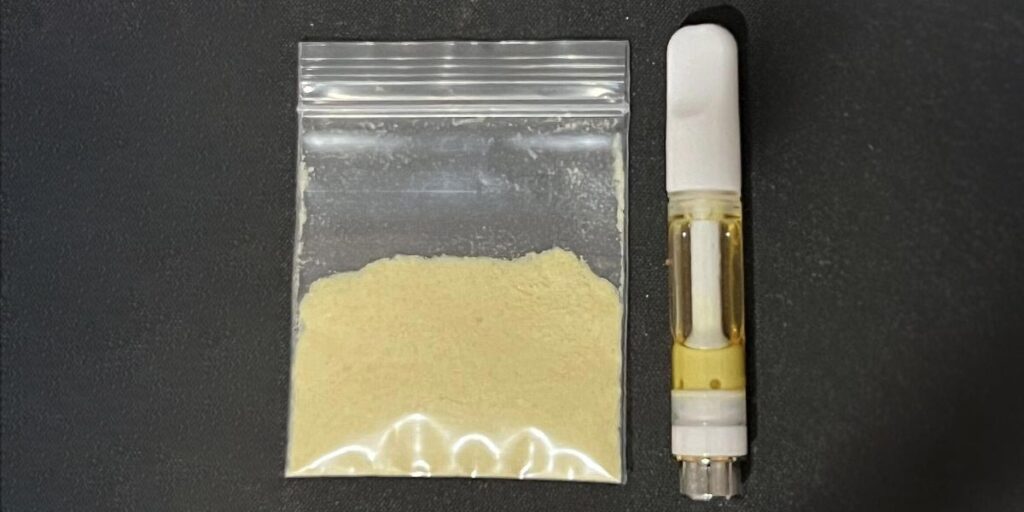DMT Addiction, Abuse, and Treatment


DMT, often referred to as the “spirit molecule,” has long been a component of spiritual rituals in some places in South America. Despite research indicating its lower physical addictiveness compared to other substances, DMT poses significant risks, including the possibility of psychological dependence.
DMT’s use has surged in the United States as more people search for spiritual awakening or an enhanced conscious experience. Yet, it’s important to recognize that DMT remains illegal within the nation.
It is essential to recognize that DMT does not have the qualities of a magical drug and is not a substitute for therapeutic interventions. Instead, it is a material that can inflict considerable mental damage.
What Is DMT?
It’s important to understand that DMT isn’t like any other drug and shouldn’t be seen as a replacement for therapy. It is a substance that can potentially harm one’s well-being.
Some believe that as death approaches, the brain releases DMT to soothe the mind and body. While this hypothesis lacks scientific validation, it continues to propagate the idea that ingesting high quantities could mimic a near-death experience, potentially resulting in enlightenment.
DMT is categorized as a Schedule I substance in the United States, signifying its high likelihood for misuse and rendering its buying, selling, or dissemination unlawful according to the law.
Street Names
DMT stands for N-dimethyltryptamine, yet it is also known by various slang terms or street names.
Commonly recognized nicknames for DMT include:
- Fantasy
- Dimitri
- 45-minute madness
- The soul compound
- Executive’s journey
What Does DMT Look Like?
DMT is commonly found as a white or off-white crystalline powder or as brown-dried plant material. It is frequently smoked, snorted, or brewed into tea for consumption; while less common, some people inject it.
Taking DMT orally delays the onset of its effects and can cause nausea and diarrhea. Most users prefer to smoke it as it tends to be the preferred method of use.

Copyright: WikiLinuz
Credit: WikiLinuz
CC BY SA 4.0
Is DMT Addictive?
The National Institute on Drug Abuse (NIDA) notes that DMT typically does not result in physical addiction or dependence. However, it can trigger psychological addiction and cravings. Despite this, addiction to DMT presents distinct and intricate challenges due to its side effects and symptoms, which vary from those associated with conventional substance abuse.
Unlike recreational use, many people regard DMT as an intensely personal experience. Users may become isolated and obsessed with using it, frequently seeking higher doses for more intense experiences. Frequent and overuse can result in dependency and heighten the likelihood of mental and physical health issues.
Ayahuasca vs DMT
Although some people may use the terms DMT and ayahuasca interchangeably, these two substances are distinct. Ayahuasca includes DMT but also contains additional chemical compounds.
People who consume ayahuasca often experience a “purging” phase before feeling its effects. This phase commonly includes symptoms like vomiting and diarrhea after drinking the tea, which, although uncomfortable, is expected before the onset of the desired effects.
While vomiting and diarrhea from ayahuasca can be uncomfortable and pose dehydration risks, which may lead to serious health issues, supporters of ayahuasca believe that purging cleanses the system, enhancing the drug’s effects. Additionally, the effects of ayahuasca last longer than those experienced from inhaling or ingesting DMT.
DMT Side Effects
When you smoke DMT, you may not be completely aware of the possible dangers and outcomes linked to its usage. Although DMT is a naturally occurring substance, it doesn’t automatically imply that it’s safe to consume.
DMT interacts with serotonin receptors in the brain and body, leading to both physiological and mental alterations. The immediate physical responses to DMT can be hazardous, and the mental effects may lead to impulsive and risky behaviors, posing dangers to users.
People with mental health disorders or concurrent conditions are more vulnerable to intense and negative experiences when using DMT, which could result in lasting psychological effects. Additionally, individuals with existing physical issues like high blood pressure or heart problems encounter increased health risks, particularly at higher doses of DMT.
DMT Short-Term Effects
When DMT is inhaled or insufflated, the immediate effects usually persist for approximately 30 to 45 minutes. However, when ingested in mixtures like ayahuasca, the onset of effects is slower, but they can endure for a period of 4 to 6 hours.
The immediate impacts of DMT include:
- Intrusive or unsettling thoughts
- Impaired coordination
- Disorientation
- Withdrawal symptoms
- Anxiety
- Bewilderment
- Distorted sense of time
- Visual and auditory illusions
- Quick or rhythmic eye movements
- Perspiration
- Convulsions
- Dryness in the mouth
- A sensation of detachment from one’s physical self (depersonalization)
- Elevated blood pressure
- Experiencing dizziness and a spinning sensation
- Accelerated heart rate
- Viewing surroundings as unreal (derealization)
- Headaches
- Intense emotional reactions
- Chest discomfort or pain
Long-Term Effects of DMT
Investigation into the enduring impacts of DMT is not extensive. However, understanding can be gained from research on comparable psychedelic substances and via discussions with people who have extensively consumed DMT.
The enduring impacts of DMT include:
- Emotional instability
- Reduced ability to focus
- Disorganized or disrupted thinking
- Hallucinogen persisting perception disorder (HPPD), or intense hallucinogen-induced psychosis
- Distrust
- Repeated recollections
- Convulsions
- Heart damage
- Constant migraines
- Cravings
It’s crucial to understand that the enduring impacts of DMT are not conclusively established. Nonetheless, comparable effects have been observed with other hallucinogens and reported by some chronic DMT users. A thorough investigation is required to completely comprehend the persistent effects linked to DMT consumption.

Serotonin Syndrome
Serotonin syndrome is a serious and potentially fatal condition resulting from an excessive accumulation of serotonin in the body. This can occur either through a slow accumulation of serotonin or a swift surge caused by mixing drugs or consuming an extremely high dosage of a single medication.
DMT triggers the release of serotonin, so consuming high amounts of DMT or using it alongside certain antidepressant drugs can lead to serotonin syndrome.
Signs of serotonin syndrome include:
- Shaking and quivering
- Bewilderment
- Dilated pupils
- Tense or inflexible muscles
- Breathing failure
- Profuse perspiration
- Extremely elevated body heat, referred to as hyperthermia
- Convulsions
- Unconsciousness
It’s vital to comprehend that the signs of serotonin syndrome can resemble other adverse effects of DMT. Hence, it’s imperative to be aware of the dangers linked to DMT consumption and remain alert for any indications of serotonin syndrome before ingesting it.
The ongoing desire to escape reality may lead DMT users to experiment with other hallucinogenic drugs or engage in polydrug abuse, which involves mixing drugs or using multiple substances at once. This type of substance abuse introduces additional risks and dangers.
Should a side effect turn into a life-endangering situation, or if a person poses a threat to their own safety or that of others, it is crucial to dial 911 or rush to the closest emergency room promptly.
Each batch of DMT and every experience can differ; thus, people who use DMT should always be ready for a potentially adverse experience, often referred to as a “bad trip” or a medical emergency. Many users opt to have a sober guide or chaperone present to watch for any signs of distress.
If you have ongoing side effects that might be from using DMT, it’s important to be open with your healthcare team about your past drug use and the symptoms you’re facing. Being honest helps them give you the best and most effective treatment for your situation.
DMT Addiction and Abuse Treatment
Personalized treatment plans that include evidence-based approaches are most effective for individuals struggling with DMT use. Residential treatment programs can be particularly beneficial, as they remove people from their usual environments and offer a new setting with continuous support. This helps foster accountability and the development of healthy coping skills.
Treatment for DMT Addiction at White Oak Recovery Center
If you or a loved one is grappling with an addiction or physical dependence, be aware that there are empathetic and scientifically backed treatment options accessible to offer help and direction.
At White Oak Recovery Center, your stay at our residential treatment center will support you in channeling your drive for self-improvement and personal growth into healthier, more constructive habits.
Contact us now to speak with our compassionate treatment specialists.

Am I covered for addiction treatment?
Your insurance may cover treatment. Call now for an entirely free and confidential assessment. Recovery starts with a phone call.

- Barker, Steven A., “N, N-Dimethyltryptamine (DMT), an Endogenous Hallucinogen: Past, Present, and Future Research to Determine Its Role and Function.” Frontiers in Neuroscience, Aug. 2018.
- “N, N-DIMETHYLTRYPTAMINE (DMT).” Drug Enforcement Administration, Dec. 2022.
- “Psychedelic and Dissociative Drugs.” National Institute on Drug Abuse (NIDA), Jun. 2024.
Medical Disclaimer:







